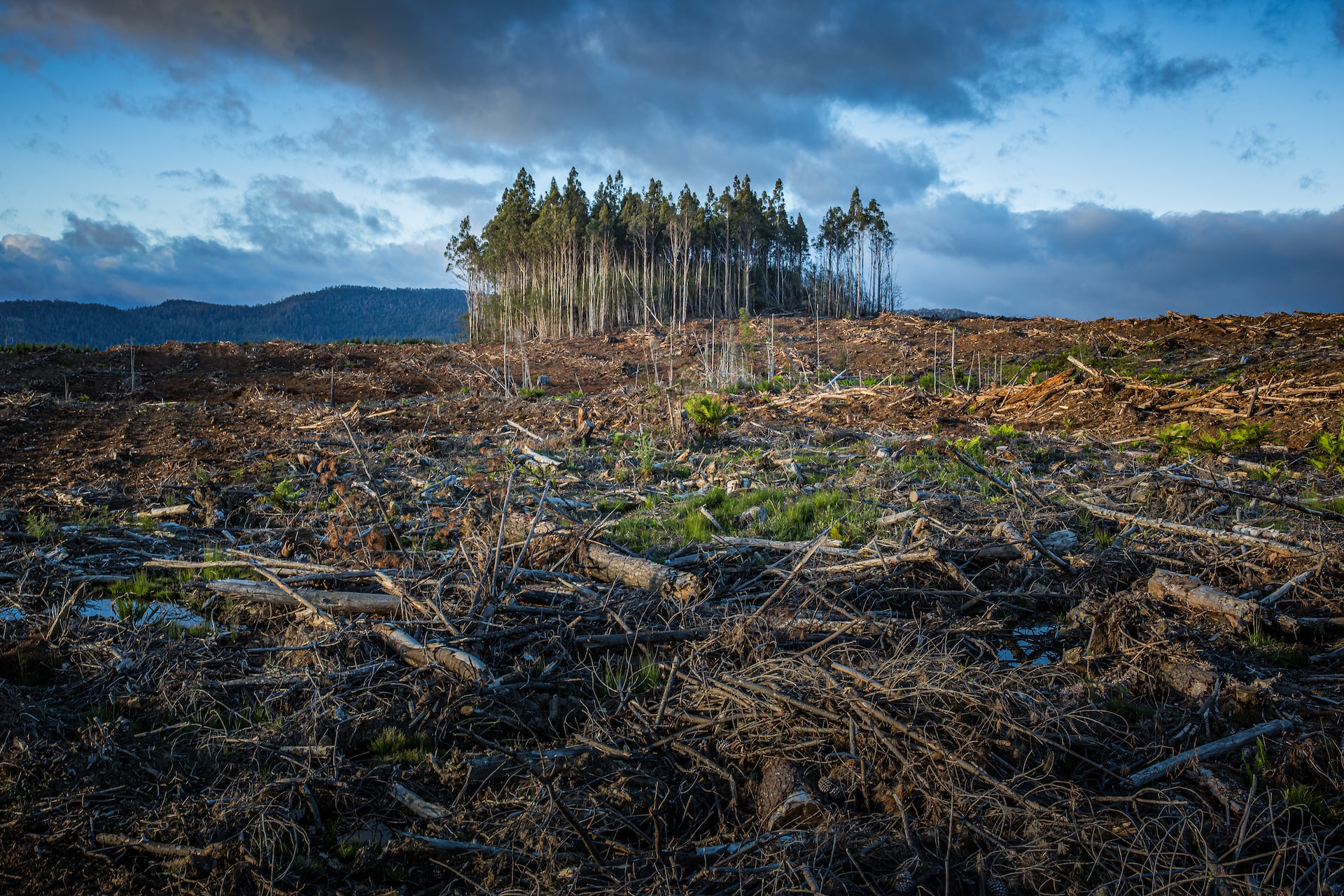
In October 2022, French environmental NGOs Notre Affaire à Tous, Les Amis de la Terre, and Oxfam France sent a notice of intent to sue BNP Paribas. Considering the answer by BNP Paribas, sent on January 24, 2023, as largely insufficient and unsatisfactory, the NGOs brought a suit before the Judicial Court of Paris. On February 23, 2023, the NGOs filed the case Notre Affaire à Tous Les Amis de la Terre, and Oxfam France v. BNP Paribas. This blog post analyzes the legal basis for the suit, highlighting why this case might open new paths in private climate litigation.
A Blind Spot in Climate Litigation
The role of credit (understood at large as investments and loans) in activating the circuit of capital and in making the production and circulation processes smooth is crucial. This entails that the provision of capital by financial institutions determines the allocation of capital and has decisive power to craft economic activities. Regulators and firms are well aware of the issue, as the debates on the Green Taxonomy in the European Union (EU) and the opportunity to bypass the principle of neutrality of the central banks show. The Green EU Taxonomy is a system to classify economic activities based on their sustainability. Companies, investors, and regulators shall use it to determine what can be considered a sustainable investment. In relation to bond purchases, the principle of neutrality set forth that the ECB action shall be carried out neutrally, envisioning the overall eligible market; this should limit the distortions of the market that the intervention might entail.
Debates have started among scholars on role of central banks in relation to climate change, and how the monetary policy should be modified to meet this challenge. This has even been the subject of a lawsuit filed by ClientEarth against the Belgian central Bank. The Belgian Central Bank has participated in the European Central Bank’s Corporate Sector Purchase Program (a program launched by the European Central Bank on the basis of which the Bank has bought euro-denominated bonds issued by non-bank corporations on the secondary market). The plaintiffs claimed that, by buying bonds from GHG-intensive companies, the Belgian National Bank had violated article 11 of the TFEU and Article 37 of the EU Charter of Fundamental Rights, which set forth the obligation to integrate environmental protection into EU policies. The case had been rejected by the Tribunal on procedural grounds. An appeal was withdrawn because, according to the press release of the claimant, “the European Central Bank (ECB) accepted its legal obligations to consider the climate in quantitative easing reforms.”
BNP Paribas’ Alleged Violations of the Law on the Duty of Vigilance
In Notre Affaire à Tous Les Amis de la Terre, and Oxfam France v. BNP Paribas, the French environmental NGOs have started a groundbreaking proceeding. The notice of intent to sue – which was the first, and necessary, pre-trial stage – and the following summons filed before the Judicial Court of Paris, claim BNP Paribas violated the loi sur le devoir de vigilance of 2017 (Law on the Duty of Vigilance; incorporated in articles L. 225-102-4 and 225-102-5 of the French Commercial Code) and the articles of the Civil Code on the prejudice écologique (articles 1246-1252 of the French Civil Code), that is any “non-negligible impairment of the components or functions of ecosystems or the collective benefits derived by humans from the environment” (art. 1247 of the French Civil Code), and BNP’s “unilateral commitment of will” (a doctrine elaborated by case law), to engage to limit and combat climate change.
The Law on the Duty of Vigilance, praised as groundbreaking when it entered into force in 2017, has no major application yet. It provides that specific companies (i.e., those who employ “at least five thousand employees within the company and its direct and indirect subsidiaries, whose head office is located on French territory, or that has at least ten thousand employees in its service and in its direct or indirect subsidiaries, whose head office is located on French territory or abroad”) must establish a plan to prevent the violation of human rights and environmental damage that may occur in the course of their business. More precisely, the plan must “include reasonable vigilance measures to identify risks and prevent serious violations of human rights and fundamental freedoms, the health and safety of individuals and the environment, resulting from the activities of the company and those of the companies it controls (…) as well as from the activities of subcontractors or suppliers with whom there is an established business relationship, when these activities are related to that relationship.” If the plan is not correctly drafted or is inadequate to measure and prevent these risks, the company is liable for the damages that it might have prevented. Anyone with a legitimate interest (that is anyone who would benefit from the success of the claim) can also ask for injunctive relief to force the company to comply with the law, a groundbreaking preventative mechanism for French legal proceedings.
Before filing a lawsuit, a person claiming that a company has infringed the Law on the Duty of Vigilance must send a formal notice to the company, asking it to comply with the law within three months. If the company does not answer, or the answer is judged non-satisfactory by those who have sent it, they can bring suit, as the three NGOs have done in this case.
The summons sent by Notre Affaire à Tous et al. to BNP Paribas details multiple violations of the law. The violations relate not only to how BNP Paribas’ plan is drafted but also the lack of clarity concerning the report of information about investments and loans and the shortcomings of the measures that the bank allegedly implements to respect the parameters of the Paris Agreement. According to the summons, the plan:
- is not self-sufficient, but refers to other documents that do not provide for binding commitments;
- does not identify with sufficient clarity the climate risks deriving from BNP Paribas’ activities, both for fossil fuel projects in which BNP Paribas is directly involved and for the companies that it supports through its financing and investments;
- is not transparent concerning the disclosure and reporting of the information concerning BNP Paribas’ financing and investment activities, as it limits only to some sectors and does not include scope 3 emissions;
- does not contain any precise and exhaustive information on the stocks and flows of financing and investments to companies active in the fossil fuel sector; and
- does not include a commitment to cease all financing and investments that support the expansion of fossil fuels that is necessary to comply with the law on the duty of vigilance.
Therefore, the plaintiffs claim that BNP Paribas must immediately terminate any financing to, or investment in, companies which develop new fossil projects. Concerning its existing investment, BNP Paribas must exercise its voting rights and its influence in order to force the invested company to renounce to new fossil projects and adopt, detail and publicly implement measures compatible with limiting global warming to 1.5°C. If this is not possible, BNP Paribas has to divest. Moreover, concerning its activities of financing and investment in any GHG emitting activities, BNP Paribas must adopt, publish, and effectively implement all measures compatible with a 1.5°C trajectory.
In France, recently enacted legislation, such as the law on the duty of vigilance, the articles of the French Civil Code on the prejudice écologique and the Loi Pacte, which has modified the article of the Civil Code on the purpose of the company, make more straightforward for NGOs to swing into legal action. In particular, article 1248 of the French Civil Code provides that NGOs that aim to protect the environment have standing to claim reparation of the prejudice écologique. Furthermore, article 1252 of the French Civil Code set forth the possibility of claiming injunctive relief to force BNP Paribas to stop financing and investing in companies which develop new fossil projects. In cases for injunctive relief, the plaintiff does not have to prove specific loss, making it easier for NGOs to bring cases to force companies to change their operations.
The case will be highly influential for private climate litigation in Europe
This will be a landmark case for France and climate litigation worldwide for manifold reasons. First, the Law on the Duty of Vigilance aims to hold the corporation liable for the activities of its subsidiaries and its value chain participants worldwide. Indeed, in climate litigation, comparative law plays a prominent role: “big cases” serve as models to other jurisdictions. Beyond national borders and despite legal differences, the global character of climate change and the flexibility of tort law allow for the filing of similar cases in different jurisdictions. Moreover, the symbolic legitimation given by case law encourages NGOs and social movements to introduce legal claims that have proved successful in other contexts to foster their demands and collective actions.
Second, this case will reverberate at least in the European Union (EU). The law on the duty of vigilance has been the primary source of inspiration for the proposal for a directive of the European Parliament and the Council on Corporate Sustainability Due Diligence, adopted by the EU Commission on February 23, 2022. On December 1, 2022, the Council adopted its negotiating position. This proposal aims to force large EU companies and non-EU companies active in the EU to adopt sustainable behavior and foster respect for human rights. If adopted, the directive shall require that companies must integrate due diligence into all their corporate policy to prevent actual and potential adverse impacts on human rights and the environment throughout the whole value chain (or, based on the draft revised by the Council of the chain of activity). Companies shall identify and prevent actual and potential adverse impacts, bring these impacts to an end or mitigate them. Furthermore, where these obligations are not fulfilled, the proposal sets forth a double mechanism of public sanctions and civil liability.
Even though the proposal’s scope is broader, and its provisions are far more detailed, the rationale is the same as the French law. Therefore, based on the law on the duty of vigilance, the French cases will be a source of inspiration when implementing and applying the future Directive (assuming it is adopted). In a field where comparative law plays a fundamental role, the importance of this case cannot be overstated.
Similarities with BankTrack et al. vs. ING Bank
A comparison can be drawn with the case BankTrack et al. vs. ING Bank before the National Contact Point for the OECD Guidelines for Multinational Enterprises. In 2017, the claimants alleged a violation of the OECD Guidelines for Multinational Enterprises by ING Bank. A key question was whether ING Bank should align its activities with the Paris Agreement targets, i.e., the goal of limiting warming to 1.5°C or at least well below 2°C. The parties also disagreed on the methodologies of calculating and reporting emissions. In the final statement that ends the procedure, dated April 19, 2019, ING Bank committed to steering its portfolio to fulfill the targets of the Paris Agreement and to measure and report its emissions based on international methodologies that elucidate the bank’s climate impact.
The Issues at the Core of Future Litigation Against Financial Institutions
It can be foreseen that three problems will be crucial in future litigation against financial institutions. First, the binding character of the Paris Agreement and the possibility of enforcing it through tort law provisions that concerns not only banks, but any litigation against any polluter. Second, the possibility of holding financial corporations liable for their investments and loans since they only indirectly contribute to GHG emissions through the provision of credit that makes carbon-intensive activities possible. Third, the modes of calculation and disclosure of GHG emissions and how it can be attributed to the financing and investment activities of banks. This last aspect, which involves crucial scientific debate, could prove to be a real conundrum. On the one hand, the absence of a proper and complete disclosure would make it almost impossible to calculate the level of emissions. On the other hand, the problem of calculation and attribution, already complex for end use emissions, is further complicated by the indirect character of financed emissions.
Finally, it may be wondered whether such litigation could be successful in different European jurisdictions, where a specific law such as that on the duty of diligence is lacking. A tentative answer is that the claim to attribute the emissions to the bank can also be based on traditional tort law. It is not a coincidence that a similar conclusion can be drawn from the two most prominent European cases against polluting companies, Shell and Total. The judgment affirmed Shell’s liability is based on tort law. The claim against Total relies, in addition to tort law, on new French statutory provisions, including the préjudie écologique and the Law on the duty of vigilance. In this case, which is still pending, the claimants argue that the plan established by Total is not adequate to identify and prevent the damages that its activities cause to the environment; they seek a court injunction that forces Total to undertake action to ensure the company’s activities align with a trajectory compatible with the climate goals of the Paris Agreement.

Riccardo Fornasari
Riccardo Fornasari is the Sabin Center's rapporteur for France.



